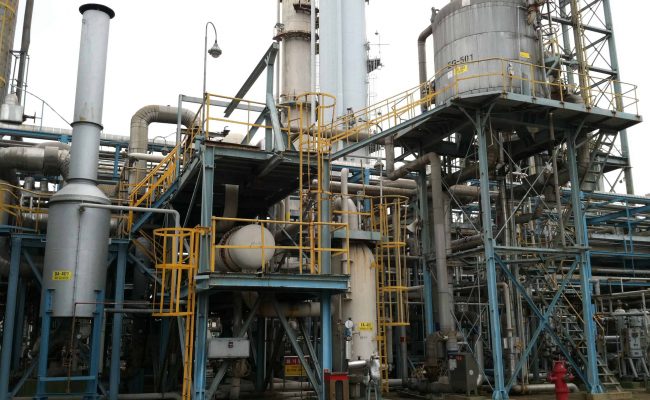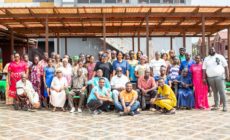$1.3bn Gas fertiliser plant takes shape in Takoradi
- Posted on
- Comment

The government and a Moroccan company, the OCP Group, have completed the front end engineering design (FEED) for a $1.3 billion fertiliser complex in Takoradi in the Western Region towards the production of fertiliser from Ghana’s natural gas.
The project is to be completed by three years’ time to help increase fertiliser availability and reduce input costs to farmers as a way to fast track the industrialisation of the agricultural sector.
The Chief Executive Officer of the Ghana National Gas Company Limited (GNGC), Dr Ben Asante, told the Daily Graphic in Houston, Texas, in the United States of America, that the project would start with the production of one million tones of fertiliser and expand along the way.
He said it followed the signing of a tripartite agreement between the Ministry of Food and Agriculture, the Ghana Gas as the supplier of the gas and the OCP Group of Morocco as the investor.
Volumes of gas
Dr Asante explained during an interview on the sidelines of the ongoing Offshore Technology Conference (OTC) in Houston that it would utilise between 80 million standard cubic feet (scf) and 100 million scf of natural gas to produce the fertiliser.
He said it was estimated to save the country about $400 million in fertiliser imports annually.
He said the project designed around the need to exploit the full potential of the country’s gas resources to quicken industrialisation and uplift the citizens.
“So, fertiliser production, which will be a secondary activity with respect to gas, will be vital.
We will be saving significant amount of foreign exchange, around $400 million per year, if we are able to use gas as feedstock to produce fertilser locally,” he said.
Imports
Ghana currently imports almost all of the fertiliser it consumes, with estimates from the International Trade Administration of the USA showing that the country was the largest importer of the product in West Africa in 2020.
The agency said the country imported about 26 per cent of all imports in the subregion in that year.
The country’s reliance on imports exposes its agricultural sector to price volatilities associated with foreign exchange movements.
Dr Asante said the successful completion of the project would save the country of such imports and the associated risks.
He was optimistic that it would make fertiliser readily available and less costly to farmers, thereby eliminating the difficulties and frustrations that farmers and the agricultural sector suffered when the war in Ukraine, a major source for Ghana’s fertiliser, disrupted supplies.
He said excess fertiliser from the local plant could also be exported to earn the country foreign exchange.
Gas for industries
The Ghana Gas CEO stated that the gas-to-fertiliser initiative was one of several uses that his outfit was putting Ghana’s enormous gas resources to use to quicken the economic transformation agenda of the government.
Dr Asante said Ghana Gas was making it more attractive for manufacturing companies to use gas as a substitute for energy generation to save cost.
He said estimates showed that a switch to gas as fuel could half the energy cost of companies, thereby freeing resources to be redeployed into other areas.
“We want to use the gas for industrial development. If you look at the Tema enclave for instance, there are a lot of industries that use liquid fuel and electricity directly that will fuel substitution to natural gas.
We believe that could cut down on their operating expenses by about 50 per cent and it will also be a platform for industrial development in Ghana,” he said.
Gas potential
It is estiamted that Ghana holds 800 billion scf of proven gas reserves as of 2017, making it the 72nd in the world.
The country’s has proven reserves are said to be equivalent to 18.4 times its annual consumption.
Mr Asante had said that more than 90 per cent of the country’s gas supply was used for the generation of power, with the smaller size used for heating in industries such as plastics and ceramics.
He said the plan was to use gas for combined heat and power in industries such as the mineral processing, pulp, paper and cement industries, where both uses were required.
-Graphic










 (Selorm) |
(Selorm) |  (Nana Kwesi)
(Nana Kwesi)